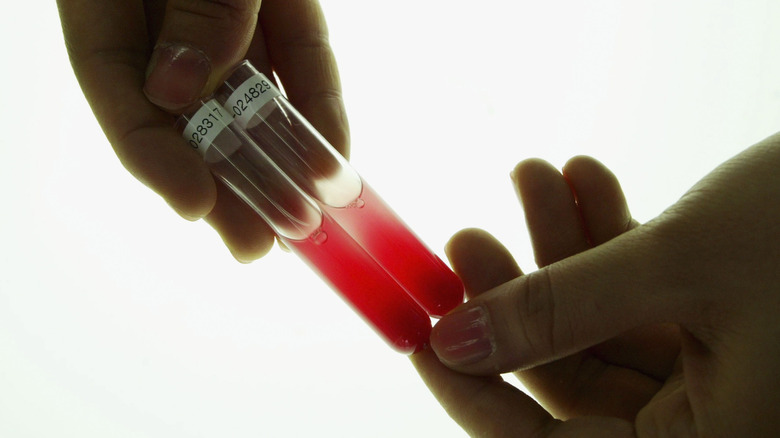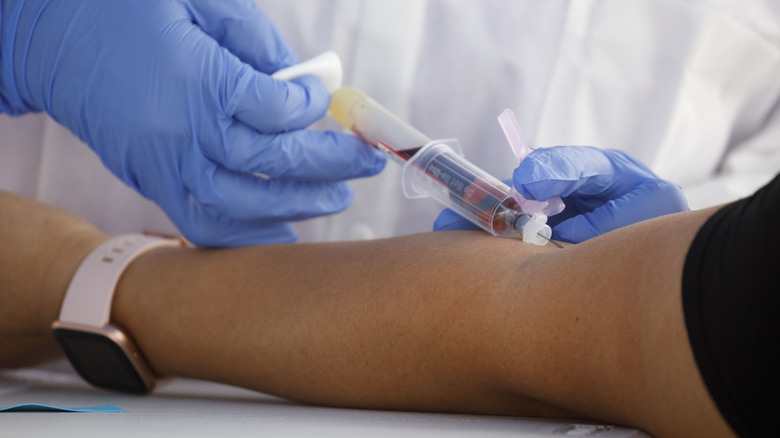The Real Reason You Can't Mix Different Blood Types
Blood types are not something that most of us typically spend much time thinking about. But in the unlikely case that you might need a blood transfusion, correctly matching the donation to your blood type could be a matter of life and death.
The average person's blood type falls neatly into one of four main categories: A, B, AB, or O. The letter indicates the presence or absence of A and/or B antigens on the red blood cells (via American Red Cross). An antigen is a substance that can trigger an immune response if it is recognized as foreign to the body. Type A blood contains A antigens, B blood contains B antigens, AB blood contains both types, and type O blood contains neither.
Your blood type is genetically determined, with each parent contributing one of two A, B, or O genes to the child. A and B genes are dominant and O is recessive, so, for example, a child who receives an A and an O gene will likely have type A blood. Each person's blood also has a positive or negative Rh factor (also received from the parents), which indicates the presence or absence of a certain protein found on the covering of the red blood cells (via Baylor Scott & White).
Not all blood types can be safely mixed
The problem when it comes to transfusions is that not all blood types can be safely mixed. By around six months old, healthy infants naturally develop antibodies against the antigens that they lack. So, for example, a baby with an A blood type will develop anti-B antibodies. If someone with type A blood were to receive a blood transfusion with type B blood, their antibodies will fight the donor blood cells, leading to a reaction that could be potentially deadly (via Healthline). Douglas Guggenheim, physician at the Abramson Cancer Center Cherry Hill explains, "When antigens come into contact with substances that are unfamiliar to your body, such as certain bacteria, they trigger a response from your immune system. The same type of response can occur during a blood transfusion if your donor's blood type doesn't match with yours. In that case, your blood cells could clump and cause potentially fatal complications" (via Penn Medicine).
So, for a safe blood transfusion, it's vital that the match between donor and recipient be correct. Those with type A blood can receive either type A or O, type B can receive B or O, type AB can receive from A, B, AB, or O, and type O can receive from other type Os (via Memorial Blood Centers). According to Healthline, people with type O blood are considered "universal donors" because their blood contains no antigens that might provoke a fatal immune response.


